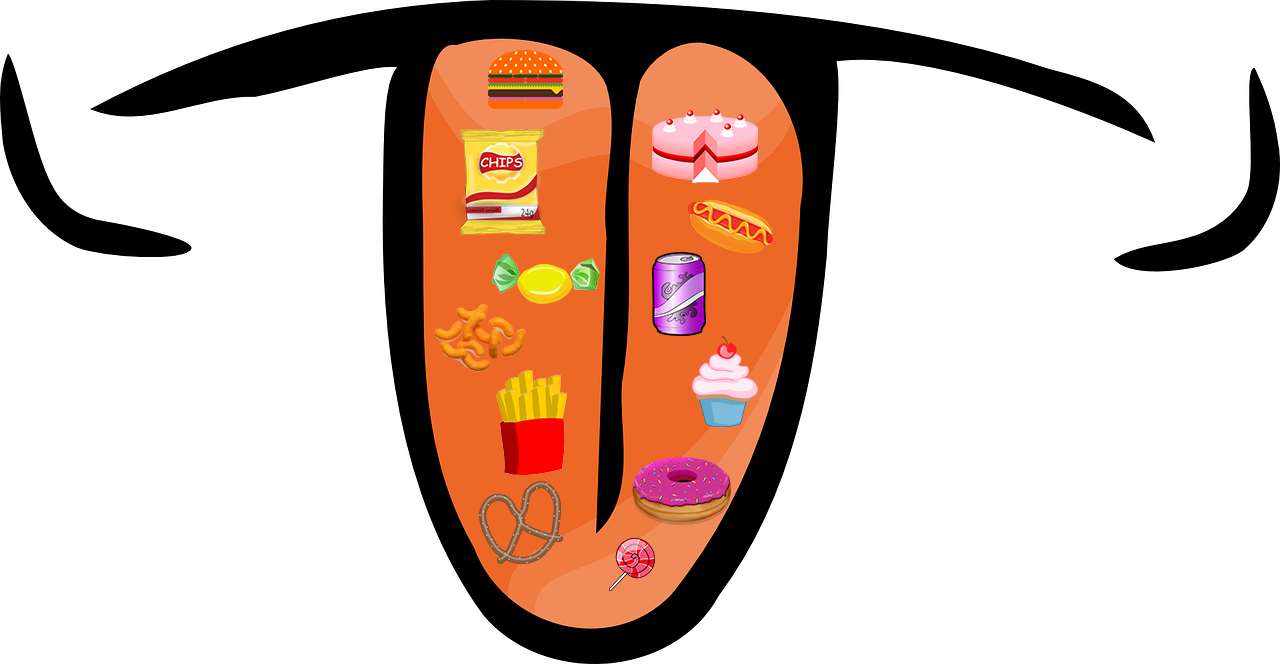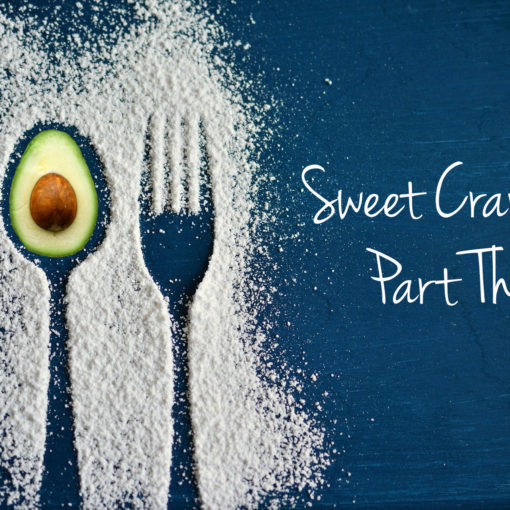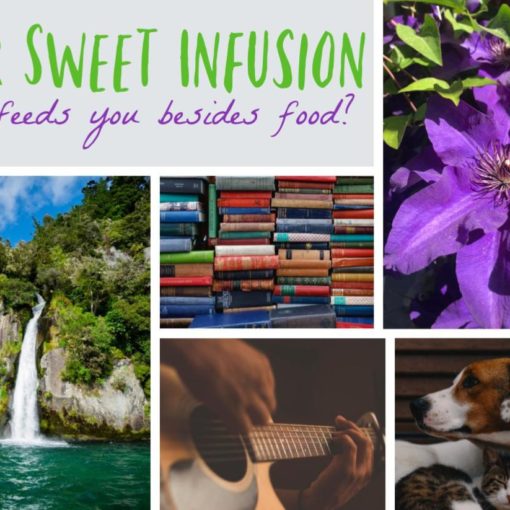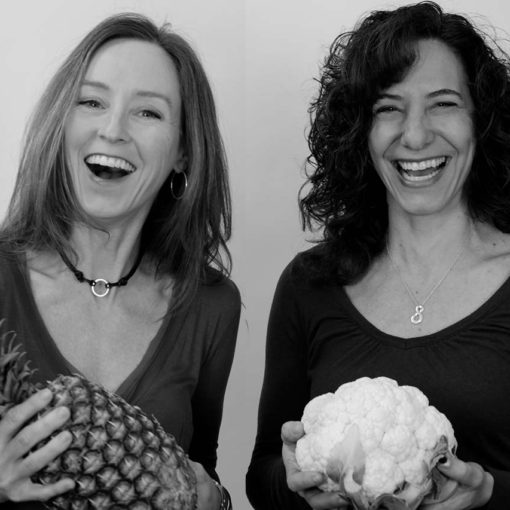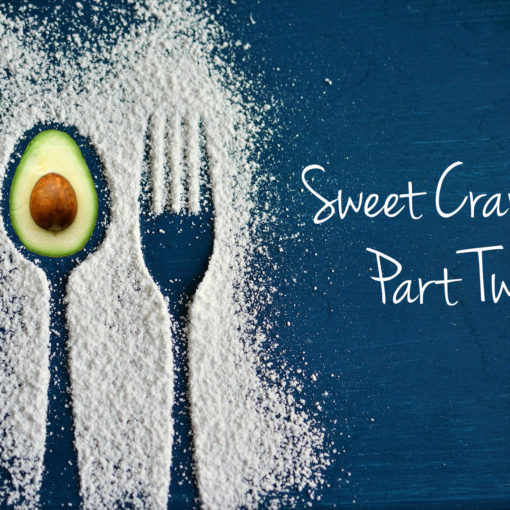Podcast: Play in new window | Download (Duration: 25:25 — 8.8MB)
Subscribe and don't miss an episode! Apple Podcasts | Spotify | Android | iHeartRadio | Deezer | RSS
Hijacked Taste Buds
Our taste buds have been hijacked by the food industry to make us believe we’re eating deliciously flavored non-foods that ultimately make us not feel well. How can we retrain our taste buds and get back to eating nutritious, real, whole foods?
Find out what’s behind this bamboozling and how to turn it around.
In our podcast we mention a couple of books on the topic (links below) as well as a delicious beet recipe.
The Dorito Effect: The Surprising New Truth About Food and Flavor
Supernormal Stimuli: How Primal Urges Overran Their Evolutionary Purpose
Beet Hummus Recipe
Here’s the transcript of speakers Wendy Bright-Fallon and Debbie Peterson.
Wendy 00:00
My husband and I were recently in a store that we usually don’t go to. And he said, Wendy, come over here and take a look at this aisle. And I swear it looked a mile long, and it was all lined with candy, the whole thing. And there were all these banners saying how much fun you could have and all these insane colors and very alluring signs. Then we went to the next aisle, and it was a whole aisle of sodas, and then it just kept going on and on. And I really felt like I was in a foreign place. It felt just so fake to me – so unreal.
Debbie 00:49
I want to take a step back for a minute and introduce us, because we get so excited about these topics. You’re listening to Nourish Noshes and I’m Debbie.
Wendy 00:59
And I’m Wendy. We’re so glad you’re here talking with us. Let’s be clear, we want to have pleasure with food. But there’s so much out there hijacking our taste buds. And what do we do about it? So we’re going to talk about this. The evolution of it all.
Debbie 01:19
Yeah. Right. That is so attractive to so many people.
Wendy 01:23
What we’re going to uncover today is how addictions happen. How do we get so lured by the processed stuff?
Debbie 01:33
We’ll talk about how these products and foods are hijacking our biology.
Wendy 01:51
Yeah, we just have not caught up really to this industrialized world – meaning our tastebuds and our response to all things not real.
Debbie 02:07
That’s right, exactly. Let’s start with taste buds.
A little geeky stuff.
Wendy 02:16
So I did not know this, but we’ve got 10,000 of these little tiny, tiny taste buds. And each one of them has 50 Plus taste receptor cells.
Debbie 02:29
Yeah! What does that look like? That’s crazy stuff. That’s why we have our tape. That’s why we taste sweet, salty, sour, bitter, umami – I think I got them all. Our brain recognizes those flavors, because those are the natural flavors, right? And it sends signals to our brain and to the rest of our body to start digesting – kicking in our digestive process.
Wendy 03:01
Yeah, that’s when our digestion actually begins – right in the mouth with the salivary glands – when we smell something or see something that tastes good, or that we assume tastes good and looks good – our salivary glands squirt.
Debbie 03:17
Right. And we depended on these tastebuds, especially when we were out, you know, hunter gatherers, nomadic lifestyles, where we had to trust that because some things were not safe to eat – our taste buds are programmed to be very sensitive.
Wendy 03:36
Yeah, it was a warning signal, right? If it was too bitter, we would say okay, that’s gonna hurt me as poisonous. I’m not gonna have any more of that.
Debbie 03:46
Right. And on the other side, is that these taste buds were also survival instincts because we needed to seek out foods that were nourishing to us with vitamins and minerals and things that our bodies needed, like salts and sugars and fats. We had to seek those out because they weren’t readily available.
Wendy 04:08
They were the way to survive.
Debbie 04:11
If you think about that hunter gatherer 8000 BC, who was out there on the savanna? Yeah, there was lots of plants to eat – tons of plants to eat. And those were probably what they ate most of the time because they were readily available. But they had to go out and look for the salty stuff. They had to go out and look for fat in mostly animal products, or they weren’t products! they were animals. They had to look for little berries during season. They had to run – they weren’t just sitting there on a shelf in a supermarket like it is now.
Wendy 04:49
Yeah, and the crazy thing is – I don’t know what the statistic is – I wished I’d looked this up…but I wonder how much of the food that’s in a traditional local grocery store is actually defined as real foods and not synthetic or processed or factory farmed. A wonder what the percentage is?
Debbie 05:12
Oh geez, I don’t think I want to know.
Wendy 05:16
It’s as though it’s taking over.
Debbie 05:25
Well, it is because it’s cheaper. So it’s cheaper to make a synthetically factory formed raspberry than to grow and pick and ship the raspberries. You know, it’s cheaper to make these fake foods. That’s why.
Ooh, here’s that statistic:
as a nation, we now consume more than 600 million pounds of synthetic flavorings a year, which comes to about two pounds per person of synthetic flavorings.
Wendy 05:59
It’s fake over real. That’s a crazy stat.
You know, we’re eating more ketchup than tomatoes.
Debbie 06:09
Oh, yeah, for sure. And it’s tied up in money.
Wendy 06:15
It really is tied up in money and its making us ill.
Oh, what was that movie called?
Debbie 06:25
Wally?
Wendy 06:27
Yeah, the animated movie Wally. It just becomes so depressing. Because everybody moved around on conveyor belts and had big size cups and big size everything. I mean, it just seems like everything’s going in that way. And then Wally finds a plant, right? This beautiful plant, and it makes his heart pump or something. I’m trying remembering. But, ugh, how do we get back to real?
Debbie 06:58
That’s the sad thing isn’t it – we’re heading that direction. Our taste buds – and other things – have been hijacked. They’ve been hijacked to think that these non-food items are what we really want.
Wendy 07:12
Well, and it’s convenient, hyper flavored, right. And the sad part is that even though it’s got that satisfaction of the sugar, fat and salt, it’s actually like a nutrition desert. It doesn’t have any of the minerals and nutrients that our body actually recognizes. So we’re all kind of walking around like zombies.
Debbie 07:42
Yeah, yeah. And I mean, again, let me go back to the fact that the sugar, fat and salt activates our brain, it gives a reward. It’s like a dopamine when we face these things, because, again, our bodies have not evolved from 8000 BC when we were hunter gatherers, and we needed that reward system to make us go out and get more of that. And food manufacturers know all that and they’re constantly creating new complex flavors and textures that are designed specifically to be irresistible to our biology.
Wendy 08:19
Got to take a big deep breath.
How do we unravel all of that?
Debbie 08:26
Yeah, well, we can’t. There’s not much we can do as individuals. I mean, the food industry is huge. And they’ve hired scientists to specifically design tastes that will get us to want to buy these processed, crazy things. So we can only work on ourselves. And what we can do as coaches is help people be aware that this is going on.
Wendy 08:51
I think that’s true. Because once you have a little we want more, right? Yeah. Exactly what you said this dopamine hit and it happens prolifically in October at Halloween. And in the store the other day. I mean, they’re already promoting Valentine’s and Easter candy. You know, two more months of sugar rich rushes. Very seductive.
Debbie 09:26
Yes, very seductive. And when it comes down to it, like I said, it’s all about money.
What to do about it:
Wendy 09:33
And so how do we trip it up? How do we unhinge ourselves?
Debbie 09:39
Yeah, don’t spend your money on these foods.
Wendy 09:44
Exactly – don’t spend your money on these foods. You know, I shop in different places than I used to 15 years ago and because I hadn’t been in this store regularly, which is literally right around the corner from my house, I don’t have that marketing in front of me all the time. And so one idea is maybe to just simply go to a different shop,
Debbie 10:12
Or stay to the perimeter of the store where all of the real food is where, you know, the produce and other real food and don’t go in the processed aisles. Stay away from them.
Wendy 10:25
Could we share just a couple of samples of people who have had sugar addictions and what they did? Because we’ve got some fabulous success stories. With the help of our accountability, the client does the work, they really create new boundaries for themselves.
Debbie 10:51
The work that you’re talking about is recognizing that something can change, something can change for the betterment – to make you feel better. Eating more nutritious foods and ditch the stuff that is not making you feel good or not super nutritious. So it’s not that easy to do just change everything all at once. But the idea is to recognize first. One of our clients was talking about how she’s just going to start the habit of reading labels every time she goes to store and buys something in a package.
Wendy 11:33
It was such so interesting because she said she had both half and half and almond milk. And she looked at the ingredients, and realized there was more real food in the half and half. And she said she would have, hands-down, thought that almond milk would have been closer to real food. And her interest really got piqued by by looking at the other things that were on her shelf.
Debbie 12:00
That’s the first step. The other is to be mindful when you’re actually tasting things – we often aren’t.
Wendy 12:12
Well, we all know, with those quick-reach foods and bags of sugar, we’re often going to them when we’re doing something else, perhaps mindlessly eating during an afternoon slump and we’re trying to get work done and trying to plow through it. And so the bag just gets open next to the computer or at night after a very long day and you’re trying to wind down. And then instead of grabbing a book, you turn on the TV and all of a sudden, there’s a bag next to you as well. And so these common daily habits are things we don’t realize we’re doing.
Debbie 12:57
Right. And we don’t really taste what we’re eating.
There are other occasions that everybody can relate to when you are paying attention to what you’re tasting, like if you go out to dinner, say at a restaurant that you haven’t been to before, and you’re sitting with friends, and you actually are paying attention to what you’re eating. And it makes for such a wonderful experience. Because you’re actually paying attention. You’re savoring these things, which we don’t do normally. And even if you are paying attention, this is where it becomes complicated. If you’re eating processed-fake foods, the second they hit your tongue, it’s like fireworks. And you’re like, wow, that tastes great. But the fact is, is that it’s an exaggeration of tastes that are actually real. And it’s a matter of training those taste buds to get back to reality.
It might not taste good…
Wendy 14:09
Picture this, you down a whole bunch of colored candy and realize you need to go eat real food. And so you grab an apple and it might not taste good.
Debbie 14:41
That’s actually the truth, your taste buds got hijacked and it doesn’t taste as good. It might seem bland, it might not have a whole lot of flavor to you.
Wendy 14:49
Let’s stay real about this. There’s a period of time you need to unweave that hijacked feeling. Time for some discipline.
Debbie 15:02
Yes -t here is a way. You have to be in a place where you want to do this. Where you’re saying, Okay, I know, there’s going to be a period of time in my life where maybe food isn’t all that wonderful, because I’m trying to retrain my tastebuds back to natural foods. It’s similar to when you haven’t been working out, and all of a sudden, you want to work out. And it’s hard work. And you don’t feel good at first. And it isn’t until two to three weeks in where you start to feel better, you start to feel stronger, you start to have more energy. But there’s that two or three week time period, that’s not so pretty.
Wendy 15:48
No. And that’s really where getting someone to be your accountability partner, making the effort with other people or hiring a coach like us, and getting buy-in from the people who are closest to you in your life and going on the journey together.
Debbie 16:06
Yes. It’s worth it to reclaim your tastebuds, to get back to nature. To get back to nourishing foods is fabulous. I’m just going to tell you a little story when I started changing my ways of moving from some process type foods to eating, mostly real whole foods. I don’t mean to throw any company under the bus, but I used to love Hershey Kisses. They were delicious. I am a chocolate person, I love chocolate to this day. And Hershey Kisses used to be one of my favorite chocolate treats.
I stopped eating them for a while because I knew that they didn’t have the ingredients that I thought were best for my body and took a break from them and a whole bunch of other things like that. And I think it must have been a year or two later that I came across candy kisses somewhere. And I was like, Oh, I’ll have one of those. And I tasted it. And it tasted like wax to me, tasted like sugary wax. I remember that so distinctly because I had been eating real chocolate, you know, with not as much sugar and rich cacao and delicious, you know, really expensive, fine-made chocolates. When you do that compared to a factory produced thing, you’re going to start to notice these things. And so I knew that my taste buds had flipped. And it was a wonderful feeling.
Is the price really really that different?
Wendy 17:34
The chocolate you’re eating now is more expensive. Yes. And the chocolate you used to have was inexpensive. But I bet that the chocolate you had that was inexpensive, you can eat 10 to 15 of those, right? But when you had the really dense, very bitter cacao with just a little bit of sugar, that that ultimately really satisfied you. Your body recognizes it as food. You have a square or two – not 10, and be super satisfied if you ate it mindfully. I bet it would end up being either the same price or maybe even cheaper – right?
Debbie 18:11
I think you’re right. And you’re healthier for it. Yep, absolutely.
Wendy 18:18
And so the price really isn’t that different.
Debbie 18:20
That’s true. Because real whole foods ultimately are more satiating, and you’re not going back for more for more and more, which is what we do with highly processed foods – our bodies are just like, where are the nutrients? Keep eating cause I gotta find them!
More fake stuff to know about.
Wendy 18:44
One of the other things that’s in these fake foods is trans fats. And trans fats promotes the excretion of the stress hormone cortisol and so it actually stimulates our appetite instead of satisfying. So an avocado that has this wonderful fat just like almonds or olive oil. These types of fats are very satiating, and they’re really good for our brain and helps you absorb all the other nutrients from the other vegetables you’re eating. But trans fats actually turn on our stress hormone turning to belly fat and continues to stimulates your appetite. It’s very, very tricky.
Debbie 19:36
And similarly, high fructose corn syrup is addicting. We process that in our liver, it doesn’t even get processed in our digestive system because it’s not food – just like drugs. And so that sweetness that hits our brain is addictive. Sweet foods filled with trans fats and high fructose corn syrup keep us wanting more and more and more.
Wendy 20:11
Hmm, I’m gonna sigh it out again.
Debbie 20:13
Here’s the thing – we want you to forgive yourself if you are on this roller coaster of processed foods because your biology is doing what it’s supposed to be doing. Our DNA is trained to go after these flavors and these foods – what our brain thinks are foods. And so it’s not your fault, but we can control is what we put into our mouth and what we decide to eat.
What to do…
Wendy 20:49
We invite you to take a sabbatical with these denatured foods, read the ingredients list, maybe shop someplace new. Grab a community of people that want to go on this journey with you. And like, like you said, Forgive yourself and say: How about starting a new journey? Let’s walk this other path?
Debbie 21:15
We’d like to challenge you. Maybe you can start with a week or maybe you can be as bold as to say, for a whole month, to have no processed foods or very little processed foods, and reset your taste buds – see what happens. You know, and the other thing, and this is something I’m doing constantly, is – just like a baby trying a new food and they don’t like it, you introduce it to them several times over and over and over again. Right?
Wendy 21:47
Right, maybe prepare it a different way with different seasonings and maybe with other foods that you know you really like. And maybe not having a large amount of it, maybe just introducing it slowly.
A recipe gets shared and changes the taste buds.
Debbie 22:00
I like that idea. One of the foods that I don’t like – and I want to like – are beets. And 20 years ago, I wouldn’t touch anything that had anything to do with beets. But now, I’ll have beets here in there. And especially if it’s mixed in with something or I’ll have beet chips, because I like those. And there are different forms of it. And I’ll keep trying to expose myself to them because it’s working. Because I’m going to like beets! {laughs}
Wendy 22:36
Well, I’m so curious. Did you like that beet tahini dressing that I made?
Debbie 22:40
I did. I really did. And I didn’t expect to and then I did. I think it’s because I’ve been training my tastebuds.
Wendy 22:48
I’m so glad. It’s such a beautiful looking dish too with that pop of real color.
Debbie 22:57
It is really is
Wendy 22:58
Colorful foods like oranges right now in the middle of winter, are so beautiful to have a bowl of oranges on the table. You just want to grab them and eat them. And they’re this perfectly delicious, sweet, amazing food.
Debbie 23:18
That’s another challenge – to do something that you might have told yourself, whether you do still not like it, or it’s a story that you told yourself- to get back into it and try it again and again.
Sharing more resources if you want to dive deeper:
Wendy 23:35
Besides having friends or us as accountability coaches, there are some interesting book resources you’ve uncovered.
Debbie 23:53
There’s this wonderful author, Deirdre Barrett, she’s a Harvard professor, psychologist, and she wrote a book a while ago, called Supernormal Stimuli – How primal urges overran their evolutionary purpose. And in that book, she talks about everything that we talked about today. And it’s a really good resource for you to understand why you naturally want these things.
Wendy 24:20
Yeah, it’s fascinating.
Debbie 24:23
And it’s not just about food. She talks about a whole bunch of other things that we go for that she calls super normal stimuli.
Wendy 24:32
And there’s another book by Mark Schatzker, The Dorito Effect – and what was the subtitle on that one, again?
Debbie 24:40
The surprising new truth about food and flavor.
Wendy 24:44
So this kind of curiosity dive is what we love to do – to explore with clients and say: how did we get here? And then help unravel those habits. What behavior doesn’t serve us anymore? And remember, we’re here to walk the journey with you if you want help.
Debbie 25:08
Reclaim your tastebuds.
Thanks for listening.
Wendy 25:12
Keep the conversation going at NourishCoaches.com and stay tuned for more Nourish Noshes as we continue our quest to make the world a healthier place.

